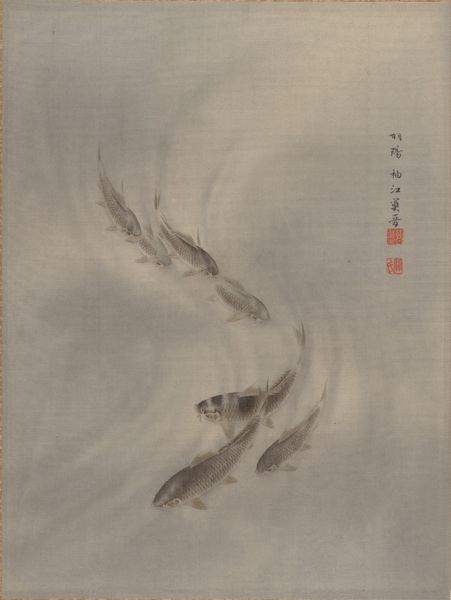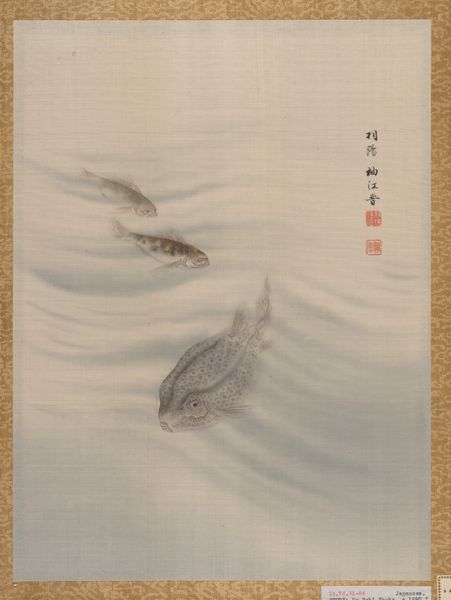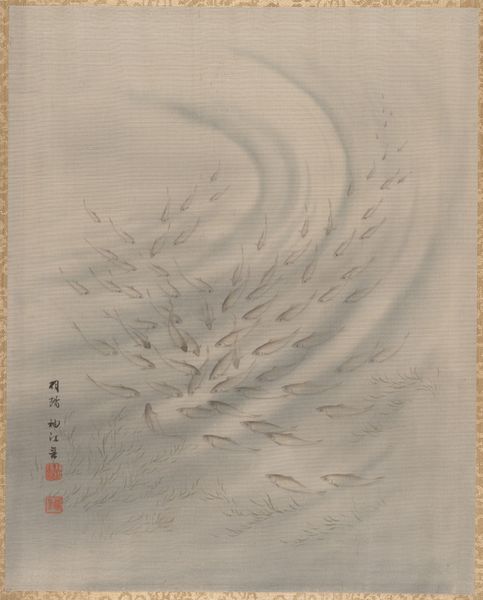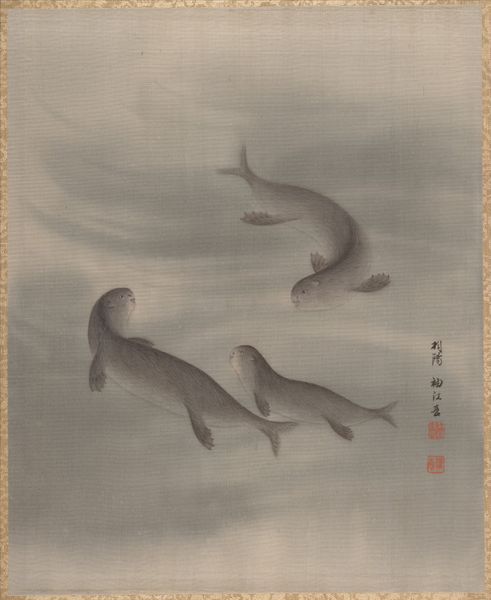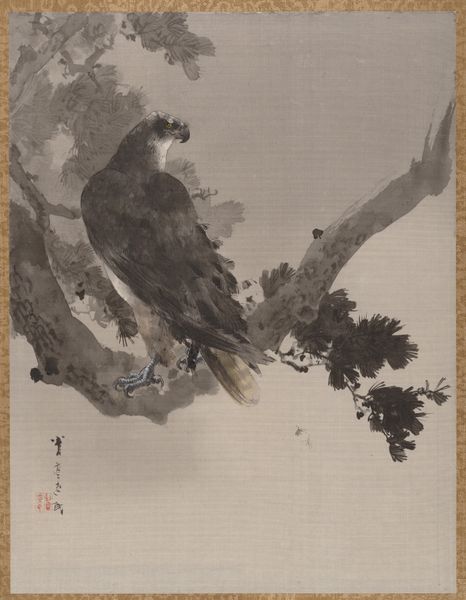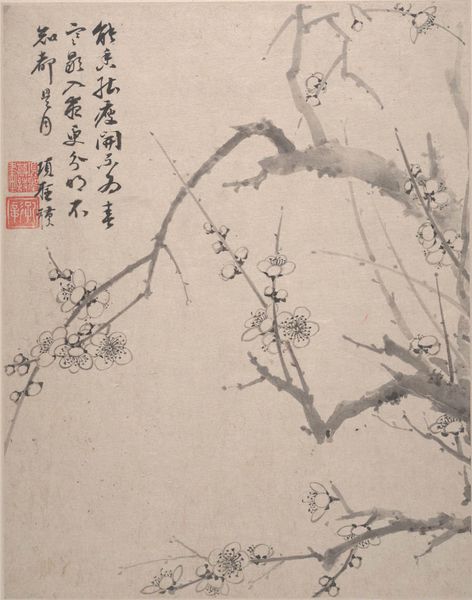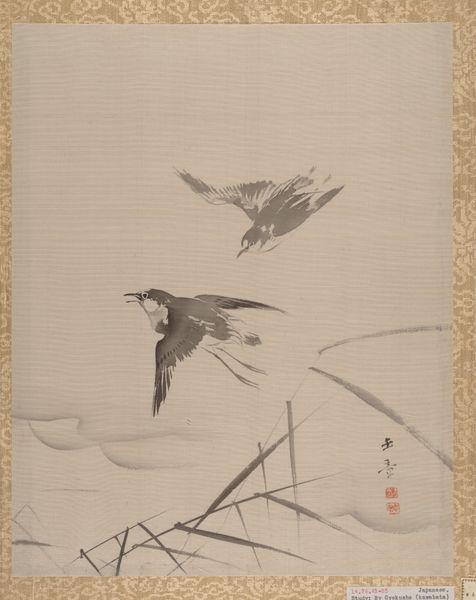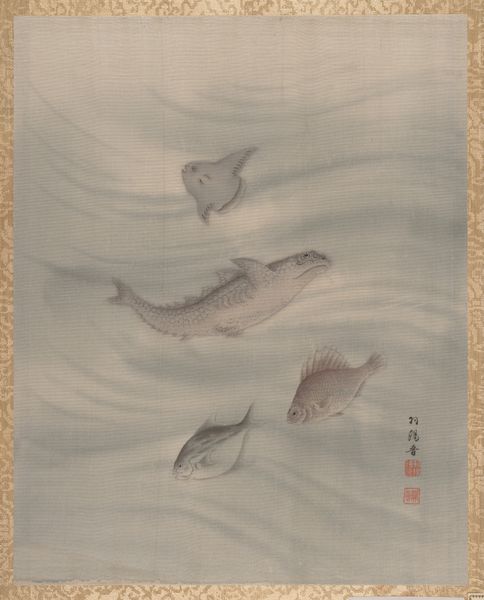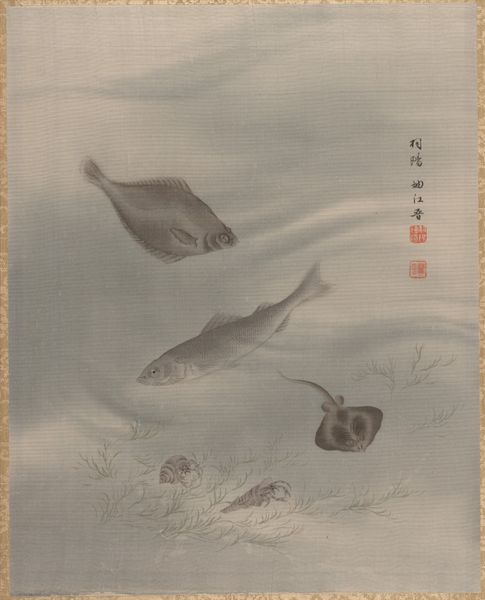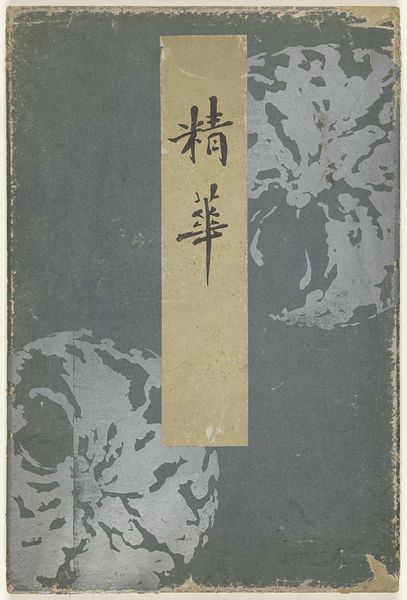
painting, watercolor
#
fish
#
water colours
#
painting
#
asian-art
#
landscape
#
figuration
#
watercolor
#
orientalism
#
watercolor
Dimensions: 14 3/4 x 11 1/4 in. (37.5 x 28.6 cm)
Copyright: Public Domain
Seki Shūkō painted these swimming fishes on silk in Japan, probably around 1900. The artist has used ink and color in subtle gradations to evoke a sense of underwater motion. The silk support is crucial here. Its tight weave allows for precise, controlled brushstrokes, essential for capturing the delicate details of the fish scales and the ripples in the water. Notice how the ink bleeds slightly into the silk, creating soft, hazy effects that enhance the illusion of depth. This effect depends on the artist’s skillful control of the ink’s viscosity. The scroll format also matters: it reflects a contemplative approach, inviting the viewer to slowly unroll and appreciate the image. The art of silk painting in Japan has a long and rich history, closely tied to social class. Silk production was once a luxury industry, and the ability to paint on it signified cultural refinement. Understanding these materials and processes allows us to appreciate the cultural significance of artworks like this.
Comments
No comments
Be the first to comment and join the conversation on the ultimate creative platform.
